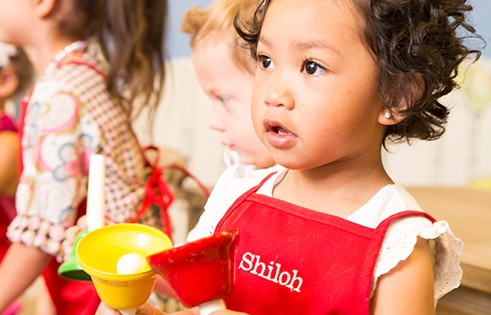Kids love to learn. It’s hard-wired into their programming! Unlike the furtive studying we remember from our education days, however, kids learning is almost always in the form of play. Not only does this style of learning help stimulate their brain, but it also has a profound impact on their physical and social development.
Play can include anything from chasing a ball outside to blowing bubbles in bathwater. It’s all learning!
However, perhaps one of the most important parts of learning for a child is music.
The Importance of Music in Children
Teaching children from a young age doesn’t need to include formal instrumental training; even just being exposed to music can have a profound effect on a child’s development. Sing nursery rhymes together, play with toy instruments together, encourage making “drums” or other instruments out of household items (such as pots and pans), turn on children’s music in the car, or take a mommy and me music class together.
Here are a few reasons why music can be important to childhood
It’s Important for Language Development
Recent studies have shown that music education has a physical effect on the left side of the brain, developing pathways used for processing language.
It can Improve Social Skills
Dr. Kyle Pruett, a professor of child psychiatry at Yale School of Medicine, links musical experience with social skills. He says, “Language competence is at the root of social competence. Musical experience strengthens the capacity to be verbally competent.”
Helps Develop Literacy Skills
Playing music enables children to hear sounds they normally wouldn’t hear, a phenomenon called “neurophysiological distinction.” This can help in developing literacy skills, which in turn, helps with academics.
It can Increase IQ & Brain Function
Increases IQ. A 2004 study showed that weekly voice and piano lessons raised the IQ of six-year-olds.
Greater neurological activity has been found in children receiving musical training as opposed to those receiving none. This is because a musician uses more of their brain when playing an instrument.
Improves Sense of Community
When children sing together, it develops their sense of community and can introduce them to music from different cultures.
Strengthens Fine Motor Skills & Spacial Skills
Positive changes occur in parts of the brain overseeing fine motor skills and the ability to tell sounds apart.
Spatial-temporal skills increase, a vital ability for fields like architecture, engineering, math, art, and computers.
Improves Communication
“Music is a vehicle for students to express themselves in ways no other communication can achieve.” Francis W. Parker
Improves overall quality of life through friendships and an enjoyable means of expression.
Final Thoughts
Whether it’s learning “Jingle Bells” on the keyboard or shaking a tambourine to “Twinkle, Twinkle Little Star” music has a profound impact on a child’s development. Their brains, bodies, relationships, and hearts all receive nourishment that no other form of education captures in quite the same way.

